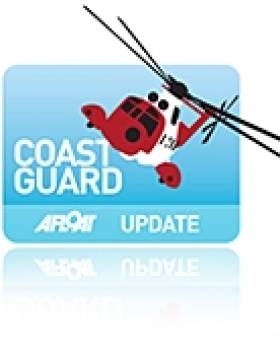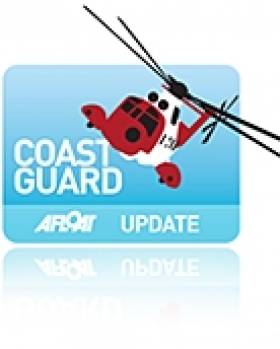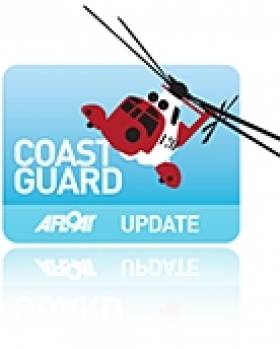Displaying items by tag: ircg
#Coastguard - The Irish Coast Guard (IRCG) has launched a new summer water safety campaign designed to protect children on beaches and near coastlines.
The IRCG is distributing thousands of free waterproof wristbands under the ‘Give Us A Hand’ campaign.
Parents or guardians can write their phone numbers on the wristband so that lifeguards, emergency services or members of the public can contact the child’s parents if the child becomes lost or becomes separated.
The wristbands have been made available to IRCG volunteer units for distribution through schools, lifeguard stations and maritime community events around the country. The wristbands carry a message reminding the public to call 112 and ask for the coastguard for beach, water or cliff emergencies.
The wristband concept is very simple: it’s made of water resistant Tyvek material which is strong and difficult to tear. The bands were designed and developed free of charge by coastguard volunteers and are a practical, simple way to assist families.
Finding a lost child at a busy beach is a very stressful experience for both parent and child. Coastal or waterside areas present further dangers with open water, sand dunes and exposed cliffs all adding to concerns.
Following a day at the beach, the band can easily be removed using scissors and disposed of by a parent or guardian.
This is the latest stage in the Irish Coast Guard’s summer safety campaign headed by its first TV advertising campaign, as previously reported on Afloat.ie.
Meanwhile, the Galway Advertiser reports that Galway City councillors have approved €6,000 in funding for promoting water safety in the city.
Coast Guard Hits Out Over Search & Rescue Deal Reports
The Irish Coast Guard (IRCG) has lashed out over newspaper articles on the recent €500m deal with CHC Ireland to provide search and rescue services.
The it was recently reported in an Irish newspaper that Fine Gael TD Fergus O'Dowd called for an investigation into the deal. This followed a previous article in the same publication which claimed proposals by the Air Corps to provide the same service at a lower rate were rejected on the grounds that its main helicopter did not have a "good reputation".
But IRCG director Chris Reynolds has hit out at the newspaper for ignoring its clarifications over the CHC Ireland contract.
In correspondence seen by Afloat.ie, Reynolds answered questions from the paper regarding the nature of the deal.
Among them he explained that the invitation to tender was publicly advertised and open, but that the then Minister of Defence had made a policy decision in 2004 to remove the Air Corps from search and rescue services due to "operational difficulties" and precluded them as an option.
Reynolds emphasised that it was a Department of Defence directive that the deal be "100% civilian".
He also disputed any link between the CHC Ireland deal and one made by its parent company in the UK, which has been called into question over perceived irregularities.
Meanwhile, Afloat.ie has seen correspondence from CHC Ireland to former Minister for Transport Pat Carey assuring that the cancelling of the UK deal has no bearing on the provision of its services to the Irish Coast Guard.
New Blog with Streaming Search and Rescue Audio
A new blog has been setup by fans of Irish SAR teams that has the latest SAR info and live audio streams of marine band comms. The latest rescue updates are available on the Twitter hashtag #ircg and the Blog site is irishsar.blogspot.com. Check it out HERE.


























































